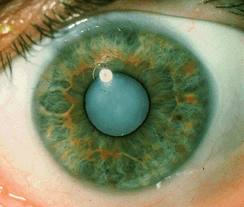Cataract
A cataract is defined as
a clouding of the lens in the eye that affects vision, a common occurrence in
the elderly. The word has a fascinating origin.
The original Greek
version (καταρ(ρ)άκτης) meant a downrushing, a waterfall, a floodgate, or a
portcullis. The last meaning seems out of place until you recall that a
portcullis was a latticed grate or gate that could be lowered to protect the
entrance to a castle. In other words, the direction is down for all those meanings.
The first English use
translated it as floodgate, and it was biblical in origin.
(1)
Genesis 7. xi: . . . on that day all the springs of the great deep burst
forth, and the floodgates of the heavens were opened.
(2) Genesis 8. ii: Now the springs of the deep and the floodgates of the
heavens had been closed, and the rain had stopped falling from the sky.
The word
cataract was then applied to a downspout, a waterfall, and a violent downpour
of rain. The portcullis meaning showed up in 1360, and the medical term in
1547. For a person with advanced cataracts, the world is cloudy and indistinct,
as if standing behind a waterfall or looking through a screen.
Available from McFarland & Co.: Word Parts
Dictionary, 2nd edition
Listen to Mike’s
program in real time every Tuesday morning, 9:10 - 10:00 a.m. EST, by going to
wtcmradio.com and clicking on Listen Now. You’ll also find about a month’s worth of podcasts there under The
Ron Jolly Show.



Comments